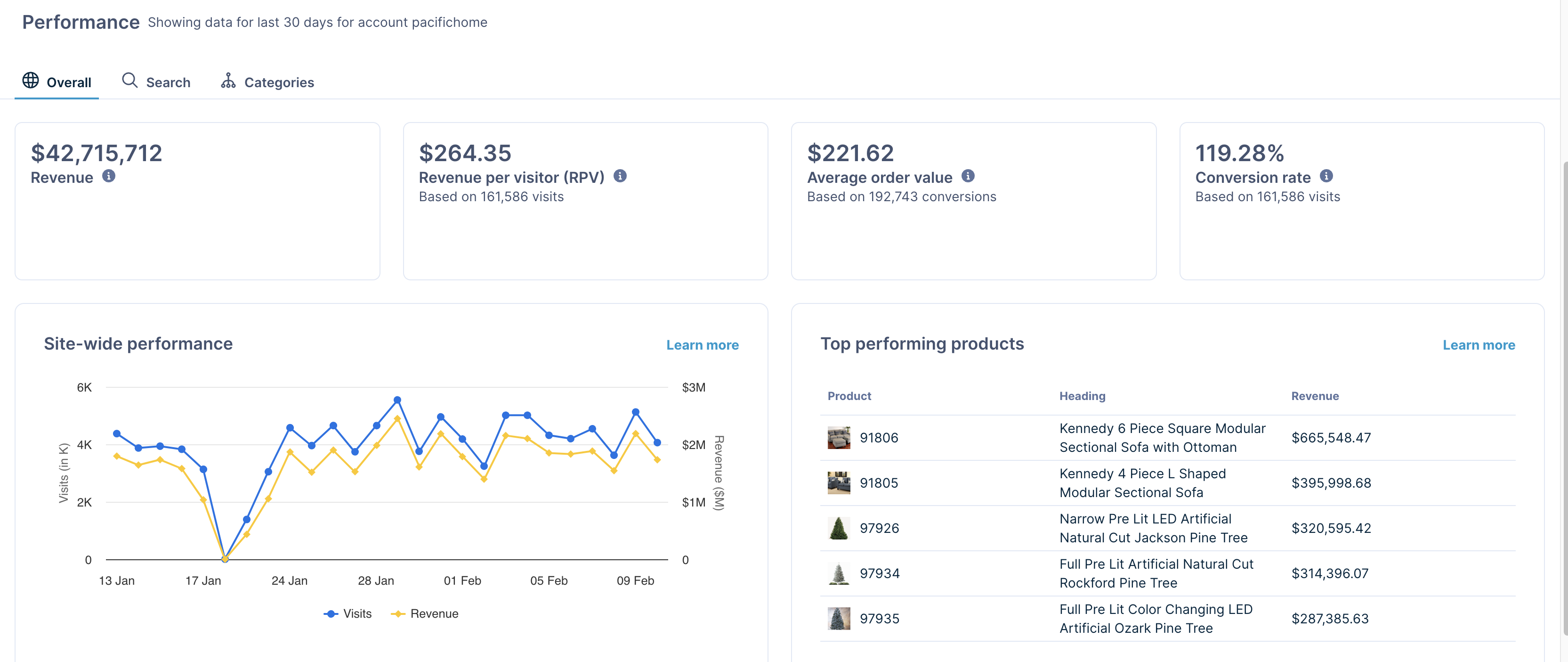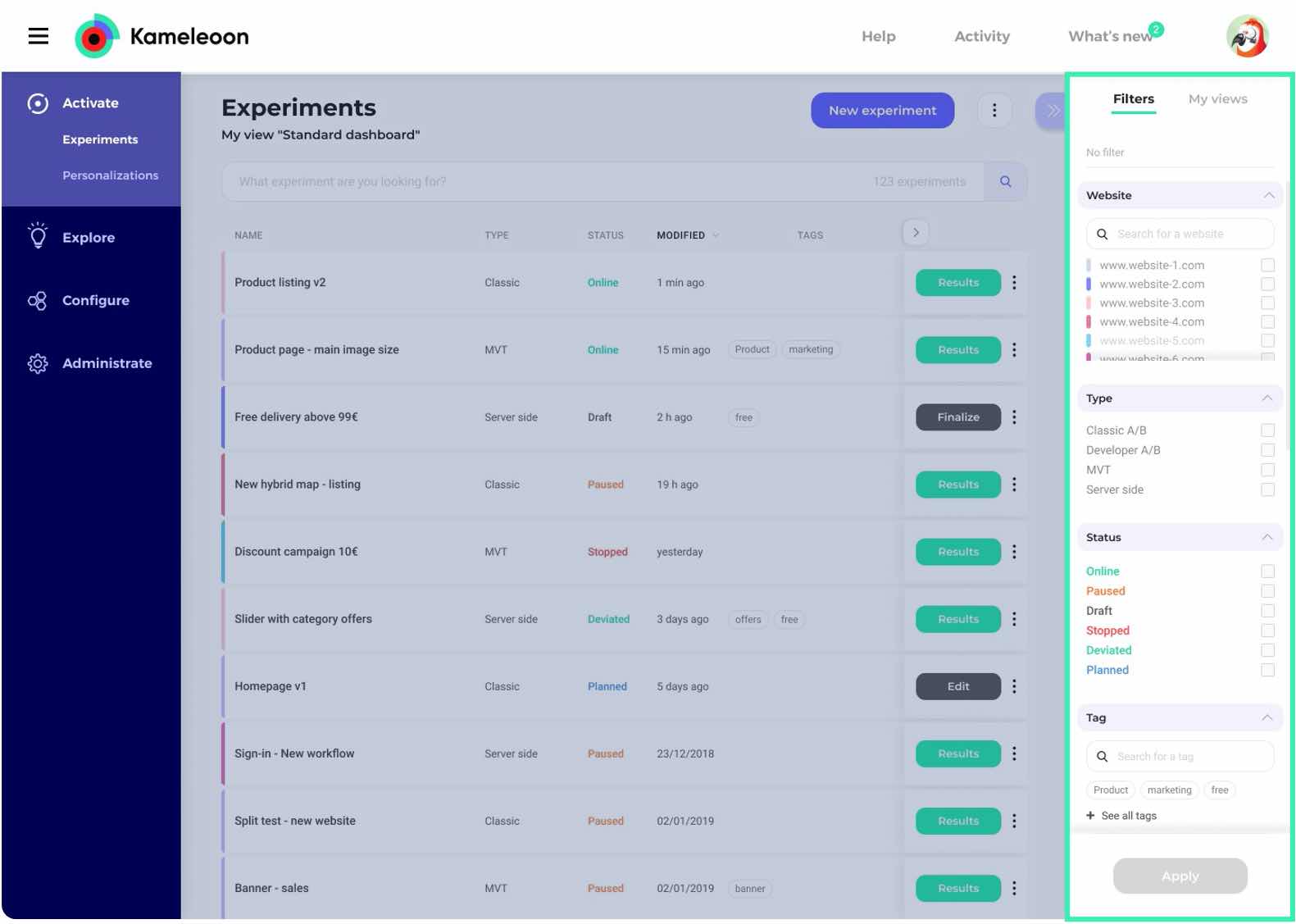Alternatives to AB Tasty
1. Bloomreach Discovery
+Pros
- Commerce-Specific AI Expertise with Loomi AI engine trained on over 14 years of commerce data.
- Proven Performance Results with consistent value delivery across diverse customer implementations.
- Enterprise-Scale Technical Architecture with server-side execution and 24/7 enterprise SLA coverage.
- Automated Merchandising Capabilities reducing manual operational tasks by 30-50%.
-Cons
- Implementation Complexity with enterprise deployments requiring 20+ weeks for custom Java integrations.
- Pricing Volatility Concerns with unexpected price changes during contract periods.
- Limited Front-End Flexibility compared to alternatives like Algolia.
- Reliability Risks with documented outages during holiday code freezes.
One highlighted feature and why it's amazing
Uses natural language processing to interpret contextual queries, successfully distinguishing between similar terms like 'dress shirt' versus 'shirt dress'.

Another highlighted feature of why it’s amazing
Combines real-time user behavior with historical data to dynamically adjust search results and category pages for individual users.
2. Kameleoon AI Copilot
+Pros
- Unified web and feature experimentation platform that distinguishes it from competitors focused on single-channel optimization.
- AI Opportunity Detection represents a proven capability for extracting hidden value from underperforming tests, with documented 15% average uplift recovery from tests initially classified as "losing".
- GDPR-compliant behavioral prediction capabilities provide particular value for European retailers facing strict privacy regulations.
- Vendor support quality emerges consistently as a key strength, with 4.5/5 G2 satisfaction scores and customer testimonials emphasizing responsive support teams and dedicated account management.
-Cons
- Implementation complexity requiring either substantial internal technical expertise or significant vendor support investment.
- Technical dependencies require 100,000+ visitor data points and 7+ day model calibration periods, limiting effectiveness for lower-traffic retailers and extending implementation timelines.
- Pricing accessibility limits adoption to mid-market and enterprise retailers, with $15,000+ monthly investment thresholds making the platform cost-prohibitive for SMBs with less than $1M revenue.
One highlighted feature and why it's amazing
Automates test variation creation through machine learning-powered hypothesis generation, reducing ideation-to-execution time by a claimed 40%.

Another highlighted feature of why it’s amazing
Identifies high-conversion audience segments using behavioral data analysis, requiring 100,000+ visitor data points and 7+ days for model calibration.
Other Alternatives
Optimizely Web Experimentation
Shogun Page Builder
SiteSpect
Unbounce
VWO
How We Researched This Guide
About This Guide: This comprehensive analysis is based on extensive competitive intelligence and real-world implementation data from leading AI vendors. StayModern updates this guide quarterly to reflect market developments and vendor performance changes.
213+ verified sources per analysis including official documentation, customer reviews, analyst reports, and industry publications.
- • Vendor documentation & whitepapers
- • Customer testimonials & case studies
- • Third-party analyst assessments
- • Industry benchmarking reports
Standardized assessment framework across 8 key dimensions for objective comparison.
- • Technology capabilities & architecture
- • Market position & customer evidence
- • Implementation experience & support
- • Pricing value & competitive position
Research is refreshed every 90 days to capture market changes and new vendor capabilities.
- • New product releases & features
- • Market positioning changes
- • Customer feedback integration
- • Competitive landscape shifts
Every claim is source-linked with direct citations to original materials for verification.
- • Clickable citation links
- • Original source attribution
- • Date stamps for currency
- • Quality score validation
Analysis follows systematic research protocols with consistent evaluation frameworks.
- • Standardized assessment criteria
- • Multi-source verification process
- • Consistent evaluation methodology
- • Quality assurance protocols
Buyer-focused analysis with transparent methodology and factual accuracy commitment.
- • Objective comparative analysis
- • Transparent research methodology
- • Factual accuracy commitment
- • Continuous quality improvement
Quality Commitment: If you find any inaccuracies in our analysis on this page, please contact us at research@staymodern.ai. We're committed to maintaining the highest standards of research integrity and will investigate and correct any issues promptly.